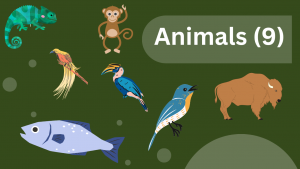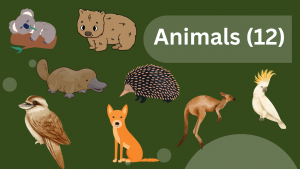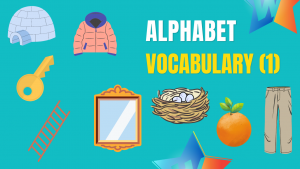Animals (8)
This article, “Animals (8),” talks about eight different animals, including their unique characteristics, behaviors, and habitats.
No products in the cart.
Vocabulary items illustrated with pictures

This article, “Animals (8),” talks about eight different animals, including their unique characteristics, behaviors, and habitats.

The article, “Animals (9)” explores these creatures: the chameleon, monkey, bird of paradise, orangutan, hornbill, buffalo, fish, and bird.

In this article, “Animals (10)”, we explore the fascinating world of pigs, cockatoos, dogs, rabbits, mice, foxes, capuchins, and octopuses.

In this post, we will explore eight types of animals: armadillos, snakes, lizards, hummingbirds, frogs, anteaters, dolphins, and macaws.

This post, “Animals (12)”, explores eight of the most iconic Australian animals: wombats, platypuses, echidnas, kangaroos, and cockatoos.

This article discusses Australia’s most well-known wildlife, including funnel web spiders, possums, quokkas, brown snakes, and box jellyfish.

This post, explores eight species of animals: the bandicoot, sugar glider, cassowary, magpie, pelican, galah, dugong, and bottlenose dolphin.

This post, “Animals (15)”, discusses a diverse array of wildlife, including goannas, numbats, redback spiders, wallabies, and lorikeets

This post, “Alphabet Vocabulary”, explores the history and significance of axes, books, cookies, doors, envelopes, fires, globes, and houses.

This article, “Alphabet vocabulary (1)”, explores the following objects: igloos, jackets, keys, ladders, mirrors, nests, oranges, and pants.

In this article, (Alphabet Vocabulary (2)”, we will discuss the history and uses of these objects, and see how they have shaped today’s world.

This post, “Alphabet Vocabulary (3)”, explores the history and uses of yoyos and zippers, highlighting their similarities and differences.